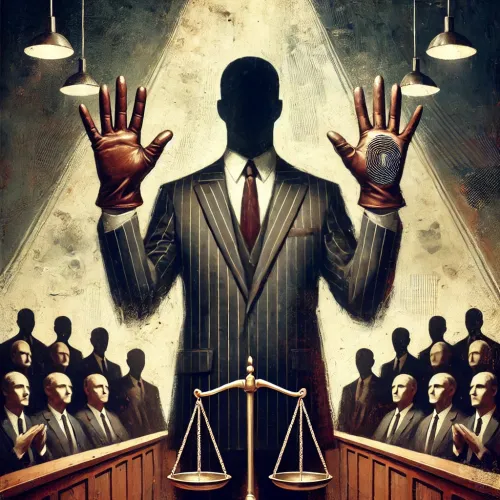In the United States legal system, juries play a pivotal role in determining the outcomes of both criminal and civil trials. A distinctive feature of this system is that juries are not legally obligated to provide reasons or justifications for their verdicts. This practice has significant implications, particularly concerning jury nullification, where jurors may acquit a defendant despite clear evidence of guilt based on personal beliefs about the justice or applicability of the law in question.
Legal Framework and Historical Context
The tradition of non-explanatory jury verdicts is deeply rooted in the common law system inherited from England. Historically, juries served as the community's voice, delivering verdicts without the necessity of articulating their reasoning. This practice was intended to protect jurors from potential repercussions and to preserve the sanctity of their deliberations.
In the landmark case of Sparf v. United States (1895), the U.S. Supreme Court held that while juries have the power to deliver general verdicts, they are not entitled to be informed about the concept of jury nullification. This decision reinforced the notion that juries need not provide explanations for their verdicts, maintaining the tradition of non-disclosure of deliberative reasoning.
Implications for Jury Nullification
The absence of a legal obligation to justify verdicts directly facilitates the practice of jury nullification. Jurors, acting on their conscience, may choose to acquit a defendant if they believe that a law is unjust or inappropriately applied, without fear of legal scrutiny or the need to publicly defend their decision. This autonomy serves as a check on legislative and judicial authority, allowing community morals and values to influence the application of laws.
For example, during the era of Prohibition in the 1920s, many juries acquitted defendants charged with alcohol-related offenses, reflecting widespread public opposition to such laws. These acquittals occurred without jurors providing formal justifications, effectively nullifying the enforcement of unpopular statutes.
Advantages of Non-Justified Verdicts
- Protection of Juror Autonomy: Allowing jurors to render verdicts without justification ensures their decisions are free from external pressures, enabling impartial and conscientious deliberation.
- Encouragement of Candid Deliberation: The confidentiality of jury deliberations promotes open and honest discussion among jurors, leading to more thorough and considered verdicts.
- Reflection of Community Values: Jurors can incorporate societal norms and ethical standards into their decisions, ensuring that the application of the law aligns with contemporary community sentiments.
Critiques and Challenges
Despite these advantages, the lack of a requirement for juries to justify their verdicts presents several challenges:
- Lack of Transparency: Without articulated reasons, it is difficult to understand the basis for a jury's decision, which can lead to perceptions of arbitrariness or bias.
- Inconsistency in Verdicts: The absence of explanations can result in seemingly inconsistent verdicts in similar cases, undermining the principle of legal predictability.
- Potential for Misuse: Jurors may base decisions on personal prejudices rather than legal principles, leading to unjust outcomes without accountability.
Judicial Perspectives and Reforms
The judiciary generally upholds the practice of non-justified jury verdicts to preserve the integrity and independence of the jury system. However, this stance coexists with measures aimed at minimizing potential abuses, such as:
- Jury Instructions: Judges provide detailed instructions to juries, emphasizing the importance of adhering to the law and evaluating evidence objectively.
- Voir Dire Process: During jury selection, attorneys and judges screen potential jurors for biases that could influence their decision-making.
Some legal scholars and practitioners advocate for reforms to increase transparency, such as requiring juries to answer special interrogatories—specific questions about their factual findings—to provide insight into their reasoning without compromising deliberative secrecy. However, such proposals remain contentious and have not been widely adopted.
The absence of a legal obligation for juries to justify their verdicts is a defining characteristic of the American legal system, deeply intertwined with the practice of jury nullification. This tradition upholds juror independence and allows the infusion of community values into legal proceedings. However, it also poses challenges related to transparency, consistency, and potential misuse. Balancing these factors continues to be a subject of ongoing legal and ethical debate, reflecting the complexities inherent in a system that strives to administer justice while honoring individual conscience and societal norms.



